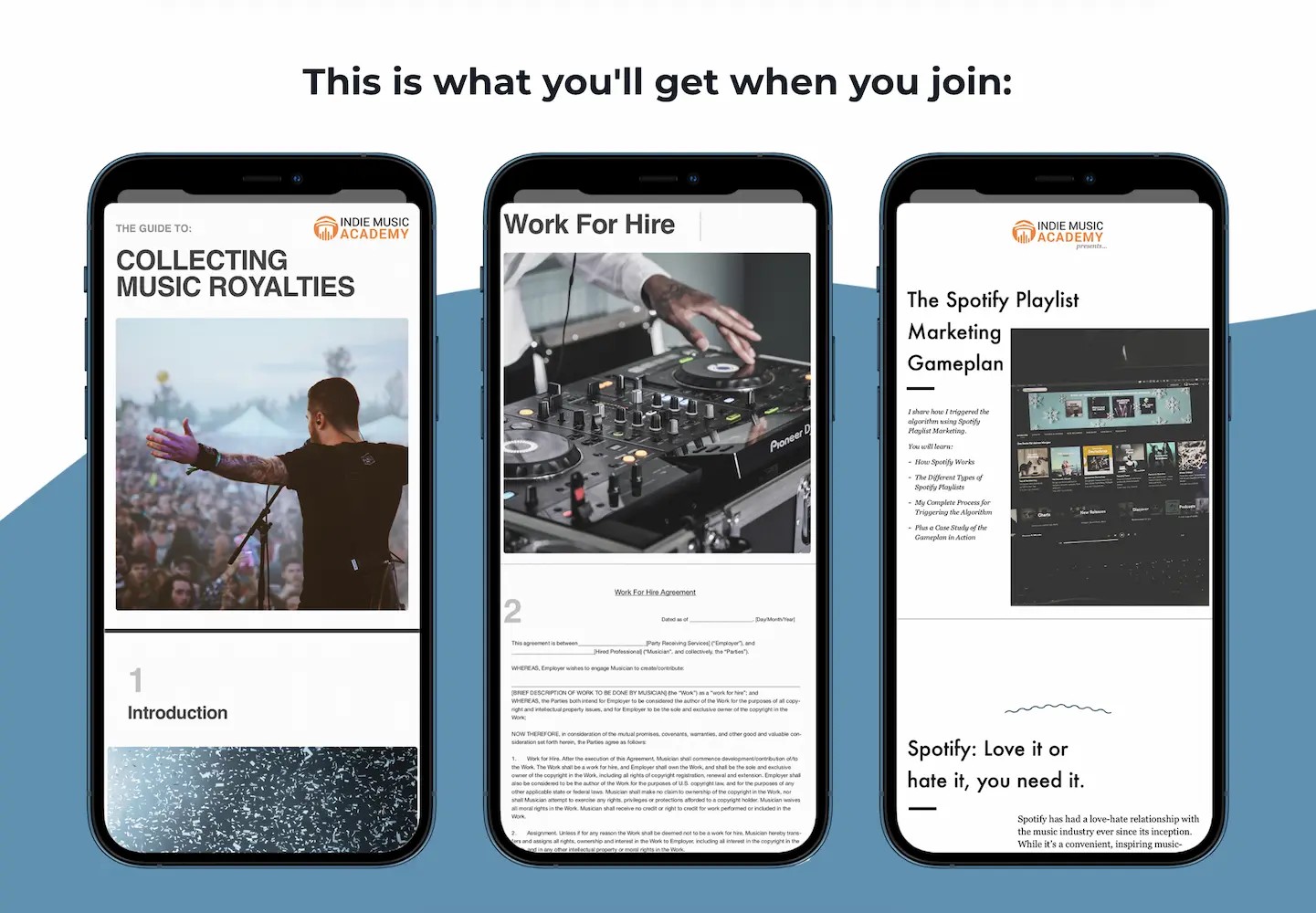ASCAP VS BMI - Distrokid Is Not Enough to Collect Your Performance Royalties

Are you earning all of your music royalties?
If you’re hoping to make millions by just getting your music played on streaming services like Spotify, Apple Music, or Google Play, we’ve got some bad news: you won’t, even if you've properly submitted your songs to a music distributor like DistroKid. Yes, it’s the blunt truth, but only because we want you to know the many other sources of revenue out there for your music career that can pay you much, much more than streaming. One of those avenues is through a non-profit, public performance rights organization like BMI or ASCAP.
What are ASCAP & BMI?
BMI (Broadcast Music, Inc.) and ASCAP (American Society of Composers, Authors and Publishers) are what are known as Performing Rights Organizations, or PRO’s for short. Where music distribution services will collect mechanical royalties, BMI or ASCAP will collect performance royalties. The purpose of a PRO is to ensure that any public performance of an artist’s song is rightfully paid for, and this includes more than just live performances. Whether it is performing live on stage, music playing in the background at a cafe or radio playtime, BMI and ASCAP collect the royalties and distribute it among the copyright owners (songwriters and publishers). They’re also organized under US law and the US Copyright Act, so you can trust they won’t run away with your money.
Historically, BMI is more centered around broadcast plays, such as plays on radio stations, while ASCAP, when it first started out, was better for sheet music publishers. But today, ASCAP and BMI do the exact same thing: collect all your public performance royalties, and send that royalty payment to your bank. DistroKid and other similar services are only for distribution and collect mechanical royalties for digital streams and sales. So, when you only take advantage of one piece of the pie, you’re essentially leaving other revenue sources on the table.
How Do BMI & ASCAP Pay?
Both BMI and ASCAP split royalties of a song between the Songwriter and Publisher, and artists have the choice of what percentage of royalties they’ll earn from each category during a process called song registration.
To watch how to register a song on BMI check out this step-by-step guide:
Don't get overwhelmed if you are confused by music publishing. Since you're an independent artist making original songs, with no record label or signed contracts, you'll most likely put 100% into Songwriting and 0% into publishing. This way you won’t lose any royalties!
For BMI, since their percentage system is on a 200% scale, independent artists with no music publisher or record deals will put 200% into the songwriting section and 0% in the publishing. The money works out the same between BMI and ASCAP, just the percentages they use are different.
Throughout the year, companies report song usage to BMI and ASCAP. This is important to note because PROs don't actively monitor usage. At the same time, they collect funds from all the businesses and entities through something called a blanket license so that they can use copyrighted music for their businesses, such as restaurants, music venues, on the radio, or in a shopping mall. A blanket license is, as the name suggests, a music license that gives coverage for nearly any song that a business or broadcast wants to play. They pay a flat fee for the use.
When each quarter ends, BMI and ASCAP divide the money from those blanket licenses and payout artists based on the percentage of usage they got in the entire music industry. This is a very important difference between the PROs and streaming distributors like DistroKid: while DistroKid distributes royalties based on the number of plays, BMI and ASCAP calculate their royalties based on the percentage of plays you got compared to everyone else. In these cases, being a popular artist with the hottest new song is an advantage. Since not everyone reports usage properly, especially smaller companies, royalties are paid based on an estimation, instead of by the nitty-gritty numbers that distributors calculate.
The Differences Between ASCAP & BMI
One difference between these two PROs is the cost of membership. With BMI, you can register as a writer for free, whereas ASCAP charges a one-time $50 setup fee. However, if you also want to register as a publisher, you'll save money with ASCAP. BMI charges a one-time fee of $150 to apply as a publisher. The contract with BMI lasts for two years, whereas ASCAP contracts last one year.
They each offer perks to music creators, and the decision on which perks are better is up to you as an artist. With ASCAP you'll get membership discounts on travel services like car rentals and hotels, health services, and even web platforms. With BMI Affiliates, you'll get discounts with FedEx and Berklee online courses. They each host showcases and conferences for members.
Both BMI and ASCAP are great options and will follow through when it comes time to payout performance royalties to rights holders.
What If I Don't Have a Performing Rights Organization in My Country?
If you don't have a PRO available in your country, or you'd rather work with BMI or ASCAP, you can still register your music with them if you live outside the United States. Check out BMI's FAQ page and ASCAP's FAQ page for more information about registering with one of these PROs as an international artist.
So, What Should You Do Now?
By all means, we’re not telling you to drop DistroKid or other streaming distributors in favor of only PRO’s. We just want to make sure you understand that they are completely different entities and that you need both to get every cent you’re owed from your performances.
To learn more about licensing and how music royalties work, check out our free Music Royalty Guide inside The Indie Valut:






